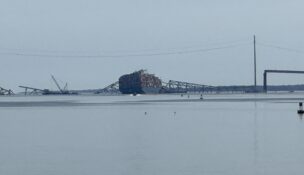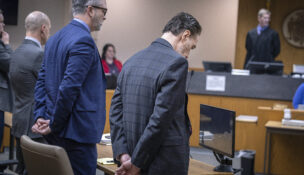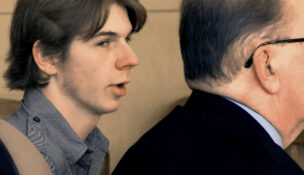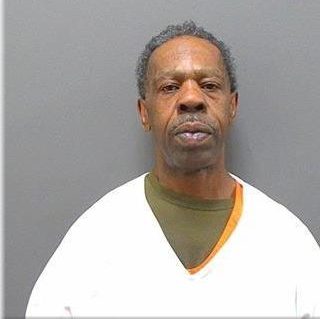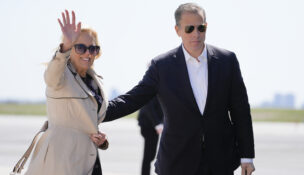Unauthorized Practice Case Analysis
By: dmc-admin//April 30, 2003//
As aggressive as Judge Murphy’s actions may appear, they would certainly be welcomed by anyone who has ever had to deal with organizations like NLPA. There is no reason why state court judges in Wisconsin should not be able to take similar actions against such groups.
However, in order for a Wisconsin state court judge to impose sanctions such as those here, a finding of contempt would likely be a prerequisite. Here, the district court made no finding of contempt, but still imposed sanctions.
Fortunately, the prerequisite finding of contempt would likely not be difficult to make in these cases. In Appeal of Cichon, 227 Wis. 62, 278 N.W. 1, 4 (1938), the Wisconsin Supreme Court set the standard as follows:
“Such contempts as may arise in connection with the unauthorized practice of the law must be judged in the light of the ends sought to be accomplished by regulation of the legal profession. In addition to insuring so far as possible that attorneys have high personal and professional character, these are principally to insure that those who appear in court for others shall understand their duties to the court and be capable of discharging them competently, and that those who hold themselves out as legal advisors and as attorneys shall have the competency which they profess to have, to the end that those requiring legal advice or legal services may not be misled and defrauded by incompetents. Thus, one who holds himself out to the public as a lawyer when in fact he is not licensed ordinarily commits a substantial offense and is guilty of an imposition upon the courts and the public whose patronage he solicits by his holding out. So also the unqualified person who appears in court as attorney for another may and usually does impose upon the court and the party whom he purports to represent. It does not follow, however, that in every such case a trial court would be warranted in inflicting a punishment for contempt. While ignorance of the law excuses no person, it is quite evident that there may be situations in which the violation is trivial, technical, and wholly unintended. In such a case there is no such affront to the dignity and authority of the court as to warrant punishment for contempt.”
As can be seen, although the passage sets a high standard before punitive sanctions for contempt can be imposed, it presupposes that any unauthorized practice of law is a contempt of court.
Furthermore, nothing in the passage would prohibit the imposition of the remedial sanction imposed in the case at bar that NLPA cease from promoting its services in the court’s jurisdiction.
As for Judge Murphy’s having ordered NLPA to bring a list of every case it has ever worked on in the district, there is some precedent in Wisconsin that suggests such an action is permissible, in Filppula-McArthur ex rel. Angus v. Halloin, 2001 WI 8, 241 Wis.2d 110, 133-134, 622 N.W.2d 436, 445-446.
In Filppula-McArthur, an out-of-state attorney was representing clients pro hac vice in two cases in Brown County. After his pro hac vice status was revoked in one of the cases, the judge on the other case revoked his status in that case as well, based on the attorney’s conduct in the first case. The Supreme Court upheld both revocations.
| |
||
| |
||
It logically follows that, if a judge can revoke an attorney’s pro hac vice status based on conduct in cases before other courts, then a judge considering contempt against a non-attorney for unauthorized practice could do the same.
The practice is even more appropriate in unauthorized practice cases, because such an inquiry is necessary to determine whether or not the actions are “trivial, technical, and wholly unintended.”
The only action that Judge Murphy took which might not be permissible in a Wisconsin state court is ordering the return of fees to defendants in prior cases.
Under Wisconsin’s nonsummary contempt procedure, a sanction imposed to punish past contempt is labeled punitive, while those im
posed to terminate continuing contempt are classified as remedial. Sec. 785.01(2)-(3).
Although the Seventh Circuit called the return of the fees in previous cases to be remedial, Wisconsin statutes would seem to require that the sanction be classified as punitive. The sanction could still be imposed, but it might require compliance with the more rigorous procedures set forth in sec. 785.03(1)(b).
– David Ziemer
Click here for Main Story.
David Ziemer can be reached by email.
Legal News
- FBI launches criminal investigation into Key Bridge collapse
- Man charged in slaying after woman’s leg found at Milwaukee-area park
- Minnesota man guilty in fatal stabbing of teen on Wisconsin river, jury finds
- Wisconsin teen sentenced in bonfire explosion that burned at least 17
- Wisconsin man who broke into home, ate victim’s chicken, slept in victim’s bed, receives prison and jail sentences
- Judge refuses to dismiss Hunter Biden’s gun case
- House passes reauthorization of key US surveillance program after days of upheaval over changes
- Milwaukee Police officer traveling to Georgia training retires before facing discipline
- Evers to ask legislature to approve largest increase in state support for UW System in two decades
- 7th Circuit Court of Appeals proposes new rules
- Federal agencies allege toxic work environment for women in new report
- Wisconsin man sentenced for sex trafficking a woman and a minor online
WLJ People
- Power 30 Personal Injury Attorneys – Russell Nicolet
- Power 30 Personal Injury Attorneys – Benjamin Nicolet
- Power 30 Personal Injury Attorneys – Dustin T. Woehl
- Power 30 Personal Injury Attorneys – Katherine Metzger
- Power 30 Personal Injury Attorneys – Joseph Ryan
- Power 30 Personal Injury Attorneys – James M. Ryan
- Power 30 Personal Injury Attorneys – Dana Wachs
- Power 30 Personal Injury Attorneys – Mark L. Thomsen
- Power 30 Personal Injury Attorneys – Matthew Lein
- Power 30 Personal Injury Attorneys – Jeffrey A. Pitman
- Power 30 Personal Injury Attorneys – William Pemberton
- Power 30 Personal Injury Attorneys – Howard S. Sicula





